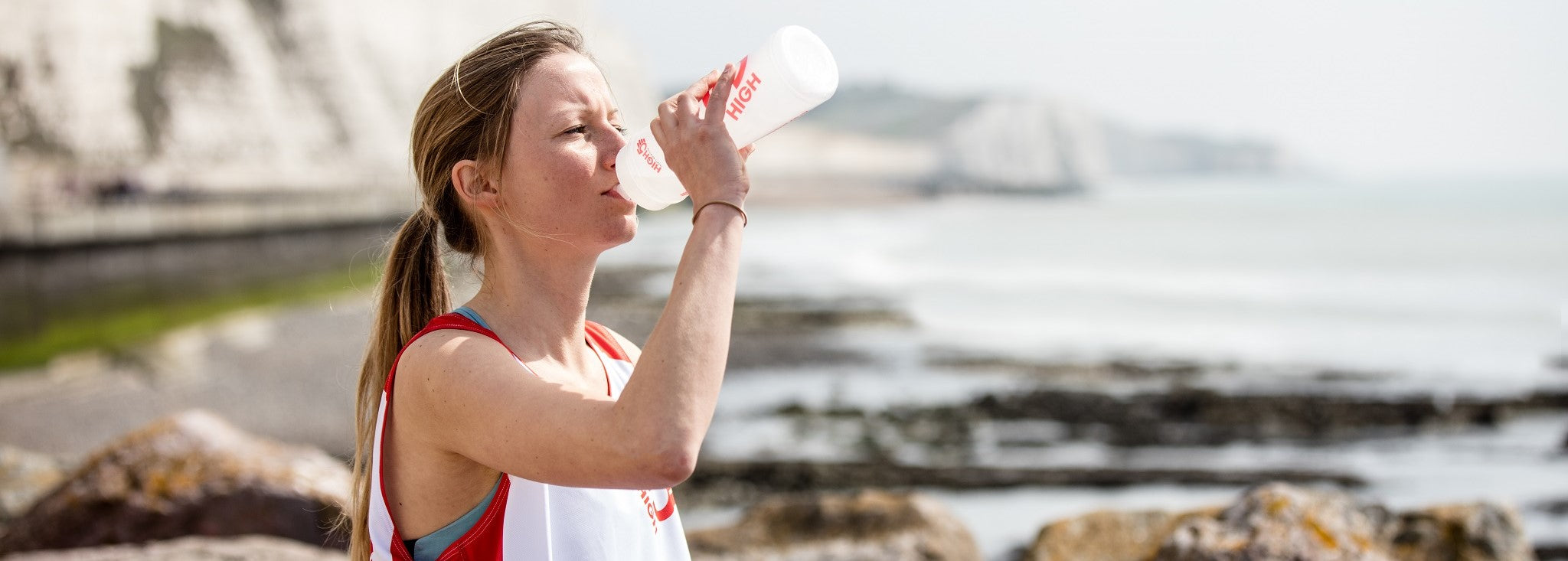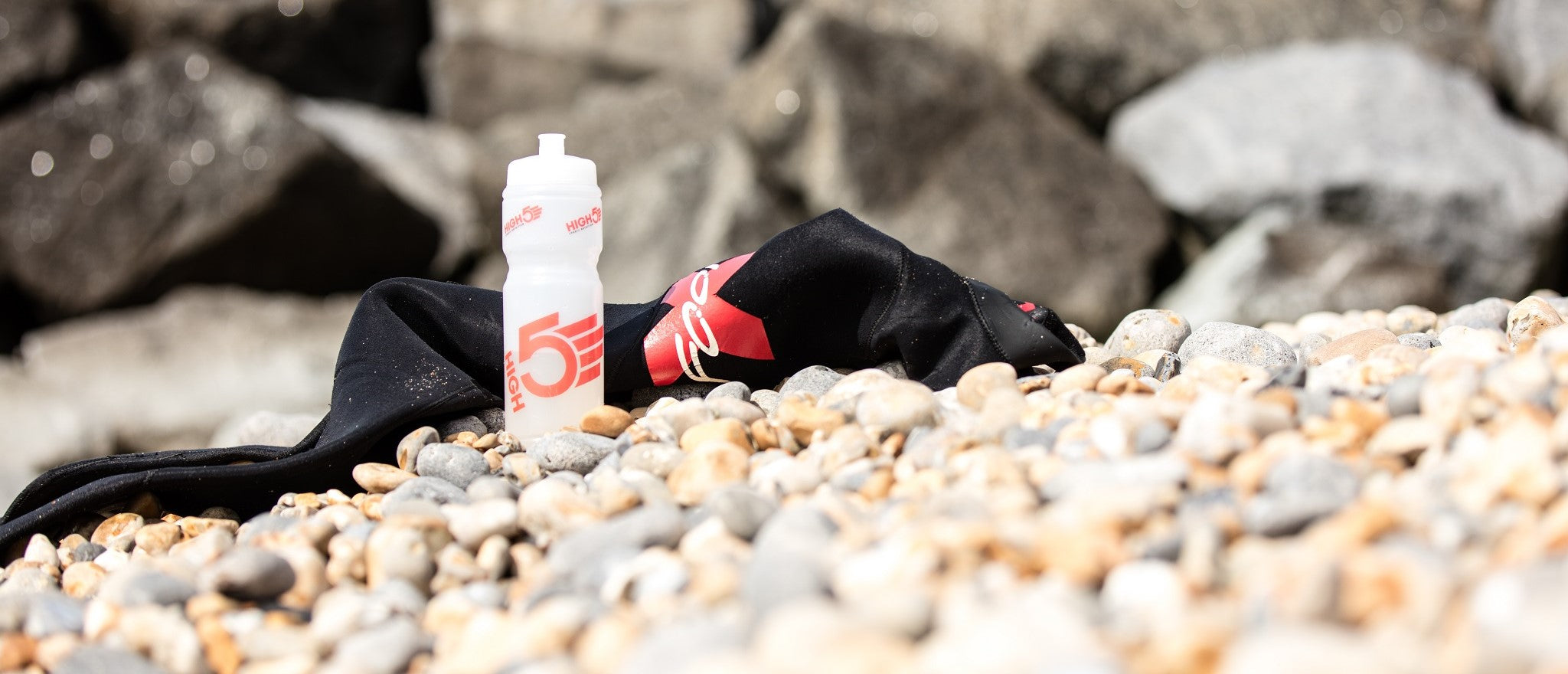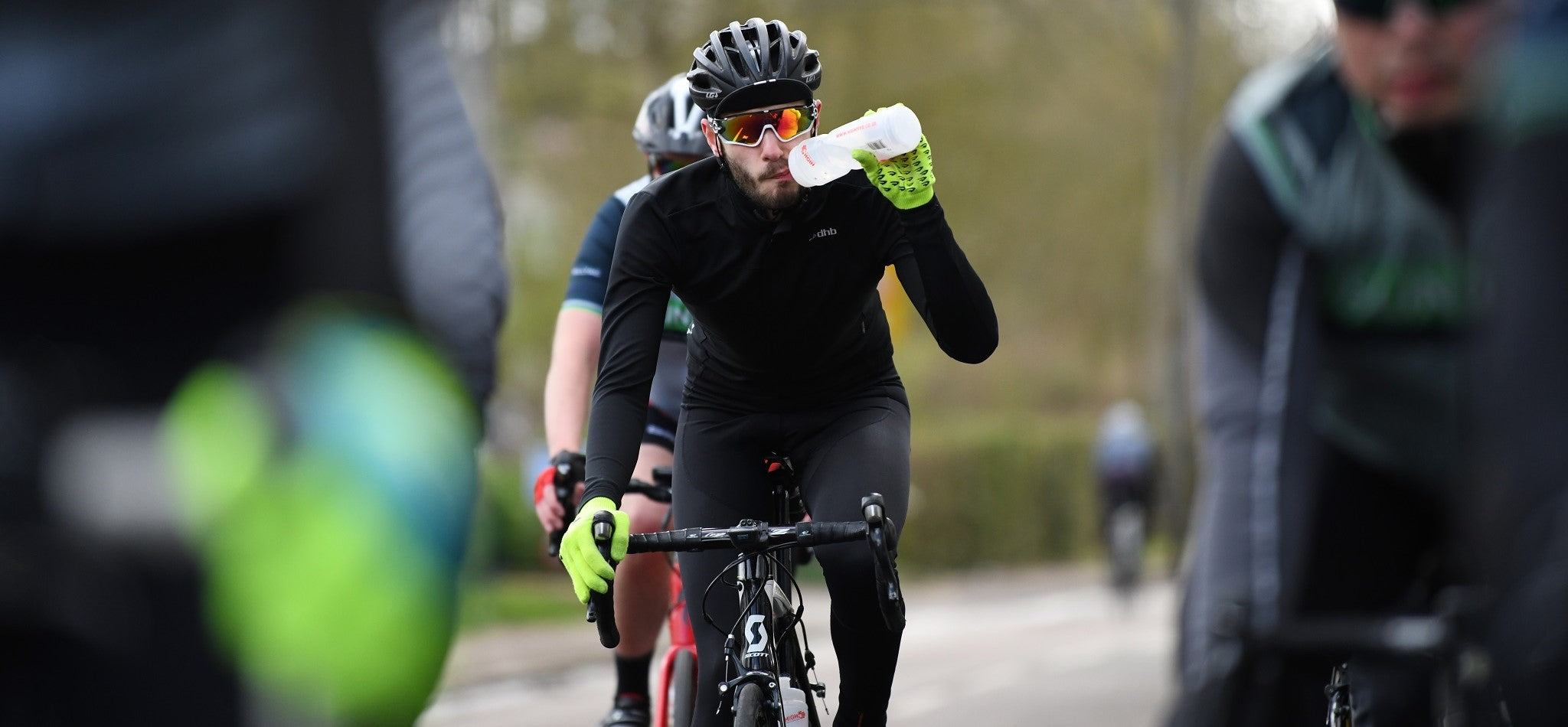'Hydration' and 'Dehydration' are spoken about a lot, particularly when it comes to sport, exercise and performance. But, what do you actually need to know about hydration and why is it important to stay hydrated? We've got 12 facts you need to bank. How many did you know?!
1. More than half of your body is made up of water
Yep, it's true. So, controlling your water intake is essential. Water is important for many processes in your body. This includes transporting nutrients and oxygen around your body, regulating your temperature and getting rid of waste products.
2. On average, you gain and lose around two and a half litres of water a day
That's a lot! So, topping up regularly is a must.
Although this number varies from person to person, it can increase significantly when you exercise because you're sweating and breathing faster. When we sweat, it’s more than just water. Our sweat is made up of key minerals known as electrolytes, such as sodium, potassium and magnesium so it's not just liquid you need to replace, it's electrolytes too - which can be made easy with sports drinks such as ZERO.
3. Your brain is heavily made up of water
Before you think that hydration is only important for your body when exercising. Think again. Your brain is full of water and insufficient hydration can significantly affect your brain function.
4. Dehydration makes you feel tired more quickly and prevents your body from controlling its temperature
Being dehydrated can affect both your general health and how well you can exercise. You’ll feel tired more quickly and you won’t be able to control your temperature as well as usual. Research shows that losses of 2% or more can reduce your mental performance, which can include short-term memory, arithmetic efficiency, motor speed and attention. The more dehydrated you are, the bigger the effect.
5. Electrolytes are minerals in your body that help your body’s blood chemistry, muscle action and process
Sodium, potassium, calcium and magnesium are all electrolytes. And while they are in water and food, an electrolyte drink like ZERO is one sure way of making sure your levels are topped up. You can read more about the electrolyte advantages to understand how they can further enhance your hydration strategy and overall performance.
6. Your daily intake should be 2.5 litres of water for men and 2.0 litres of water for women.
The European Food Safety Authority (EFSA) recommends a daily intake of 2.5 litres of water for men and 2.0 litres of water for women. If you're unsure on whether you're dehydrated or not, one of the best indicators is the number of times you need to go to the toilet and the colour of your urine, which should be pale yellow. If you don’t have to go as often as you normally would, and your urine is of a dark colour, it’s likely that you’re dehydrated. Having a headache, and feeling lethargic and tired can also be a sign of dehydration. During exercise, a dry mouth or lip can also be a strong indicator. But beware that some foods, like beetroot, can also change the colour of your urine!
7. Fruit and vegetables are high in water
Hydration primarily comes from drinks but did you know a small proportion should also come from food? Around 20-30% in fact.
8. Pre-hydration matters!
Most people don’t think much about pre-hydration, but making sure you are well hydrated before you exercise is really important, especially in warmer weather. If you’re dehydrated before you even start exercising, you will make your heart work harder and your body will find it more difficult to control your core temperature. All this can lead to a drop in performance, and potentially be risky to your health too. Starting well-hydrated means you can enjoy your sport more.
9. Being dehydrated can affect your energy levels.
Your muscle cells are almost three-quarters water so if you’re short on fluids, you’ll feel the strain. Drinking little and often will give you the best chance of hitting your exercise targets. How much really depends on how much you sweat and how long you exercise for but here's a way of working it out:
1. Weigh yourself before exercise.
2. Weigh yourself after exercise.
3. Calculate the difference of your pre and post exercise weight and add any fluids you consumed during this period too.
4. Divide the difference by the duration of exercise for your hourly sweat rate. Here’s an online calculator that lets you easily calculate sweat rates based on the above steps.
10. Exercising for 90 mins or less? Use an electrolyte drink
When you're exercising for up to 90 minutes you have enough energy stored in your muscles to fuel your sport. Therefore, your main focus should be on hydration which can be achieved with a zero calorie electrolyte drink like ZERO.
11. Exercising for 90 mins or more? Use a carbohydrate-electrolyte solution
If you're exercising for 90 minutes or more, you need to focus on both hydration and energy to keep you going for longer. Carbohydrate-electrolyte solutions enhance the absorption of water and helps your endurance performance. HIGH5 Energy Drink is a scientifically formulated carbohydrate and electrolyte sports drink designed for use during exercise to both replace key electrolytes and supply energy to your muscles.
12. Even with a good hydration strategy, you often finish exercise dehydrated
No matter how much you drink during exercise, it’s important to continue drinking afterwards. You should aim to replace 150% of your fluid lost through exercise within 3 hours of finishing. This means that if you finish exercising with a one litre fluid deficit, you should drink 1.5 litres. Not only will this be refreshing, but it will also restore your fluid levels. A drink that also contains carbohydrates and protein, like HIGH5 Recovery Drink, will also enhance your recovery and help grow your muscles.
While focusing on hydration is key to your performance and recovery, understanding how to prevent common issues like headaches after running is just as important. For strategies and tips on preventing headaches after running, ensure you're well-prepared to tackle this challenge and enjoy a more comfortable post-run recovery.
Shop Hydration
 During exercise, not only does your body lose water but also important electrolytes which your body needs to keep moving and stay hydrated. Our hydration drinks are purposefully designed to replace missing electrolytes and keep you hydrated so you can be at your best for longer. Shop all hydration here.
During exercise, not only does your body lose water but also important electrolytes which your body needs to keep moving and stay hydrated. Our hydration drinks are purposefully designed to replace missing electrolytes and keep you hydrated so you can be at your best for longer. Shop all hydration here.







